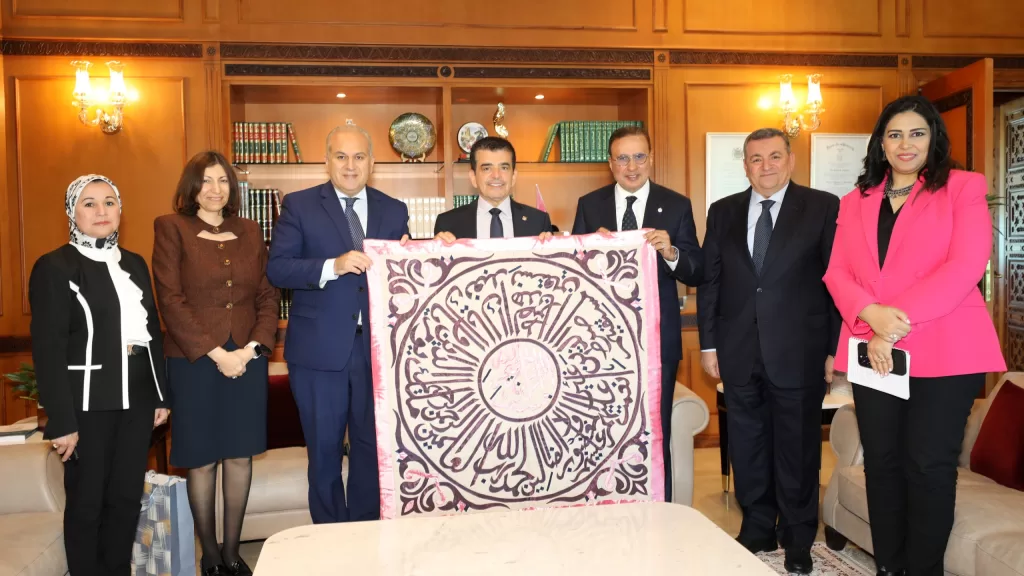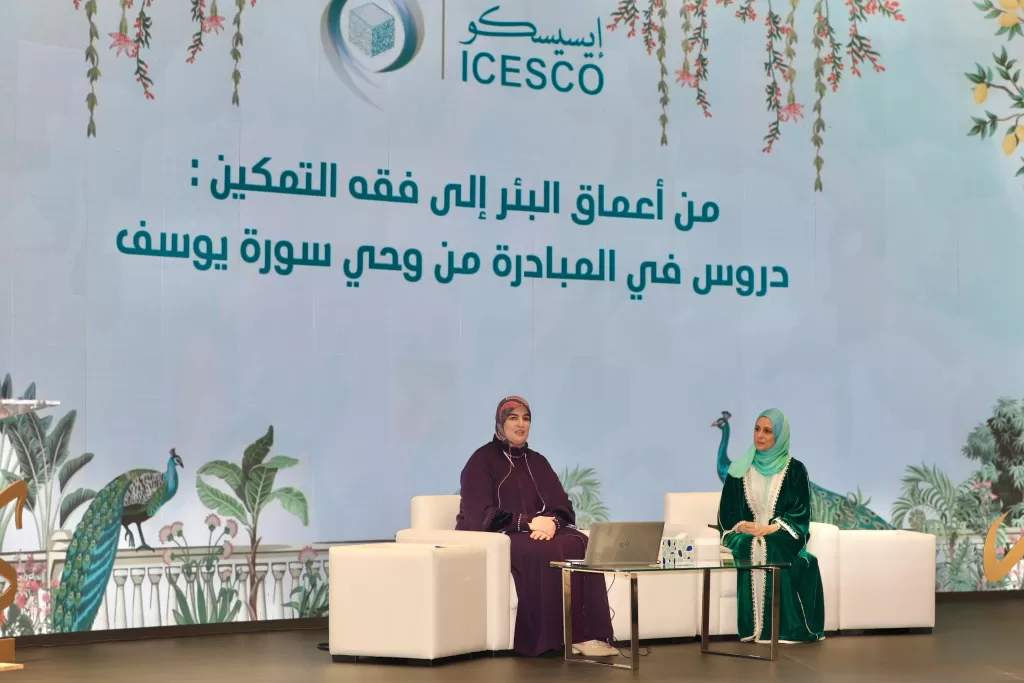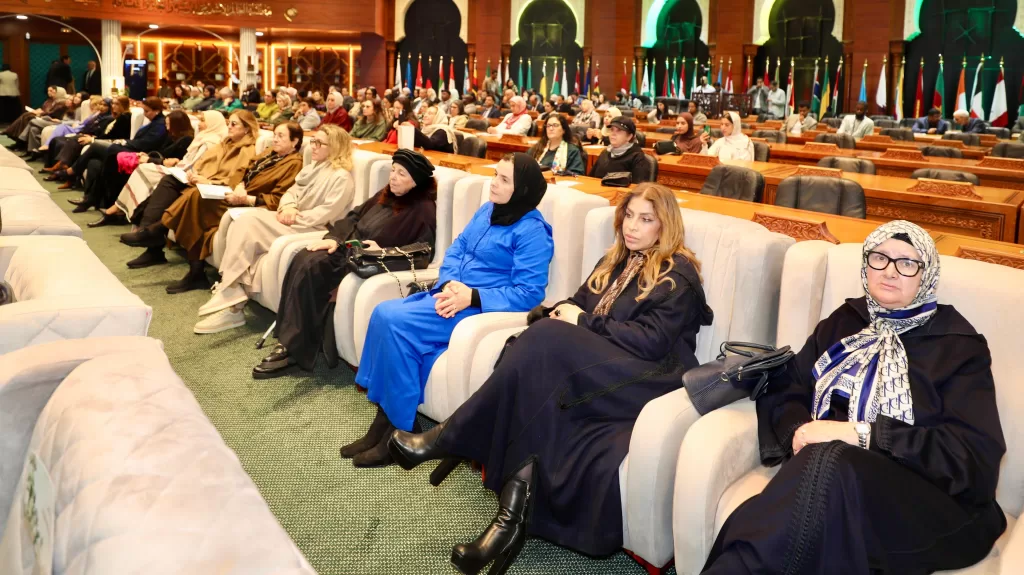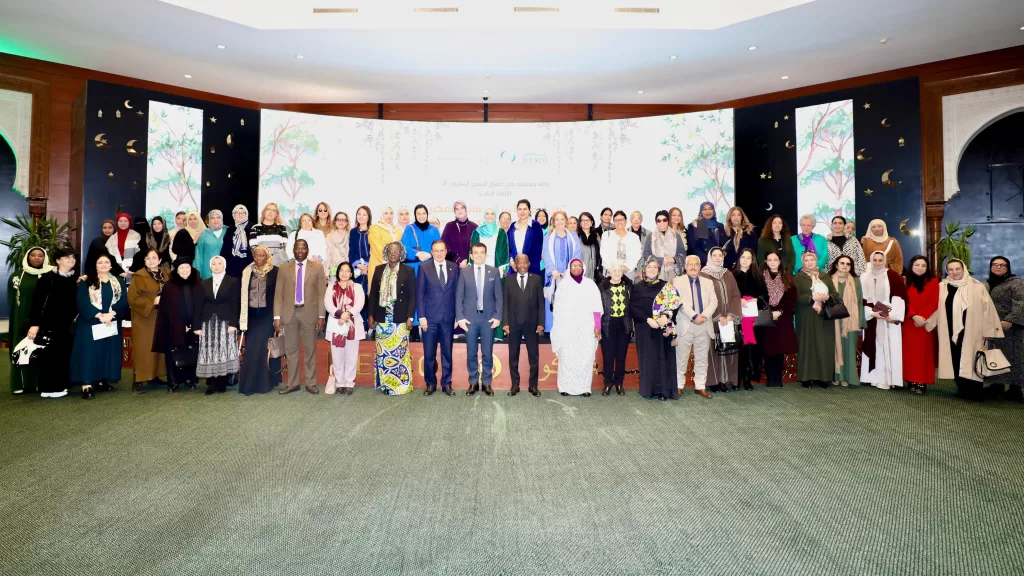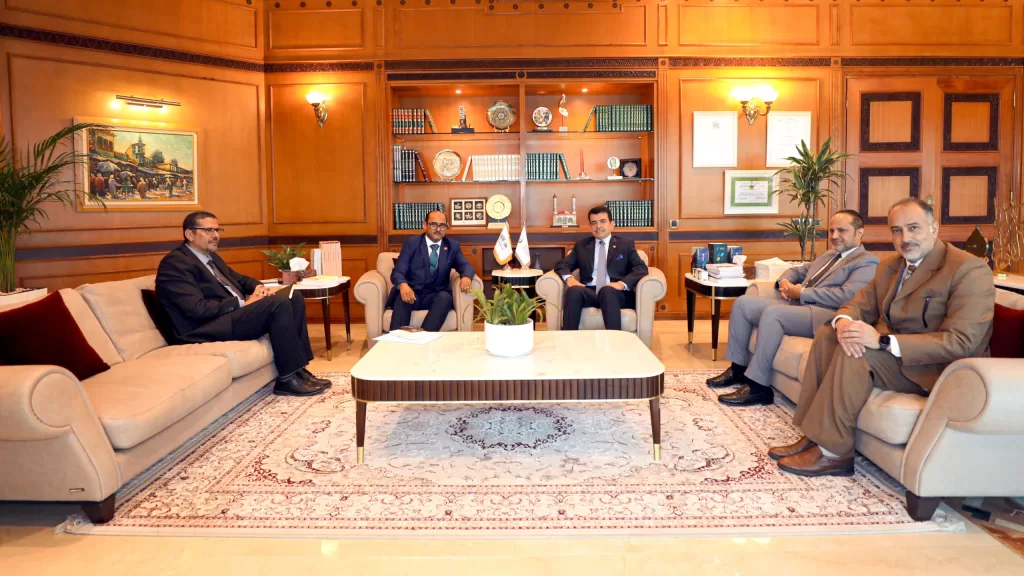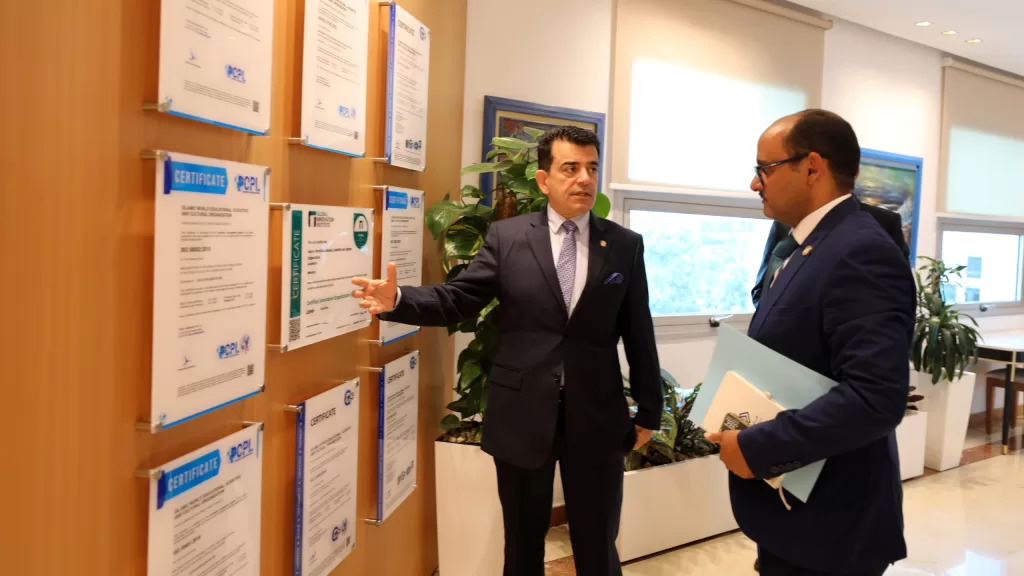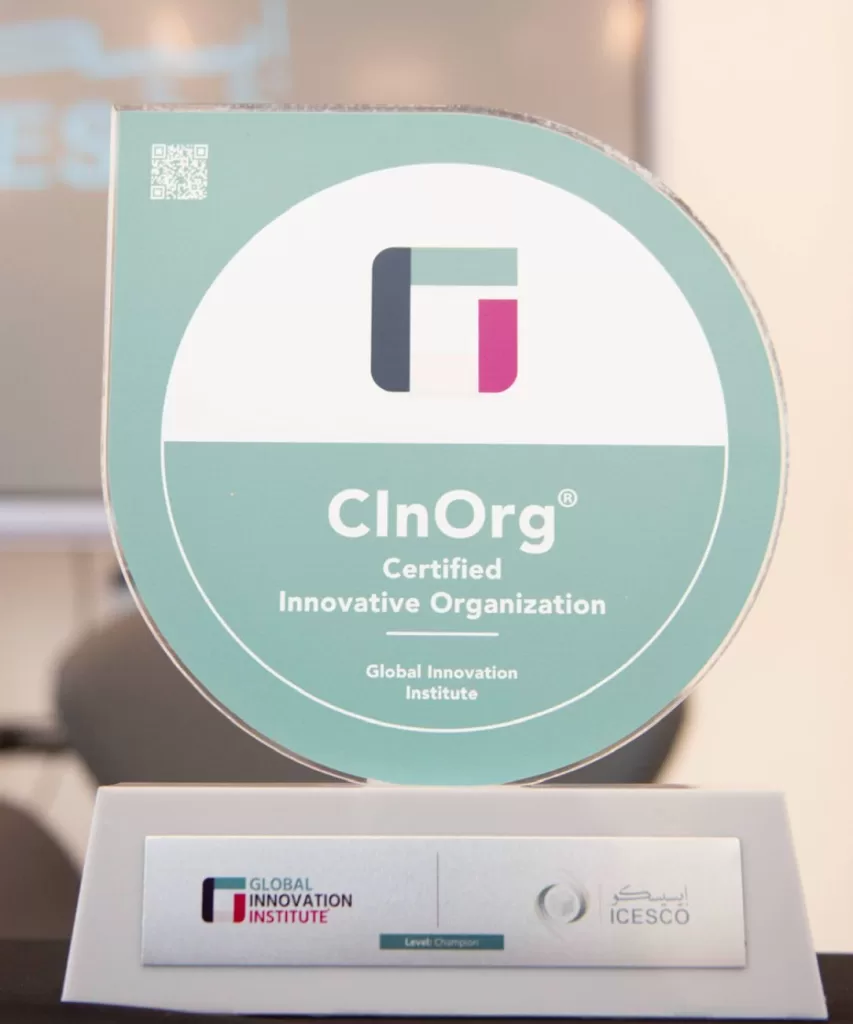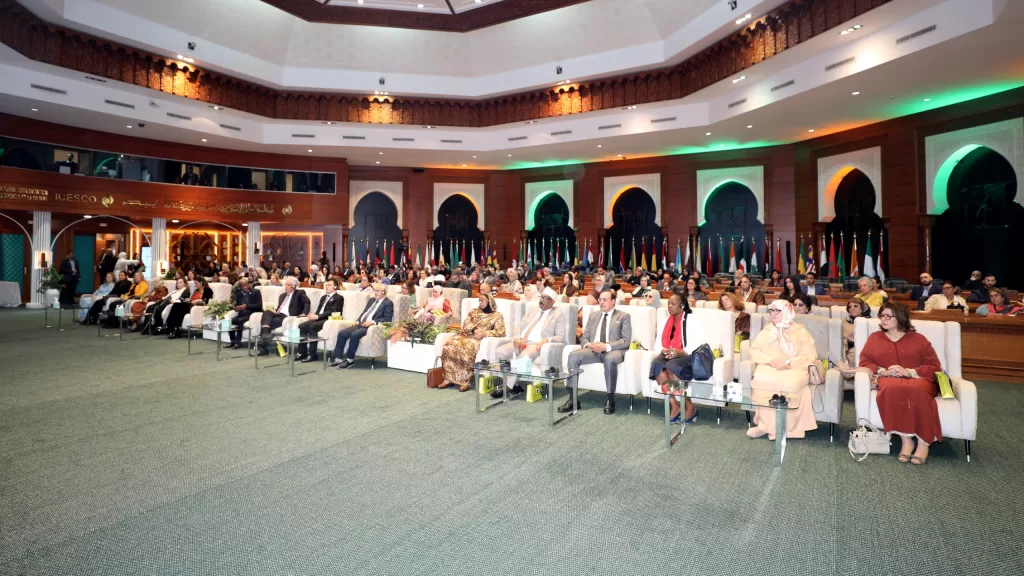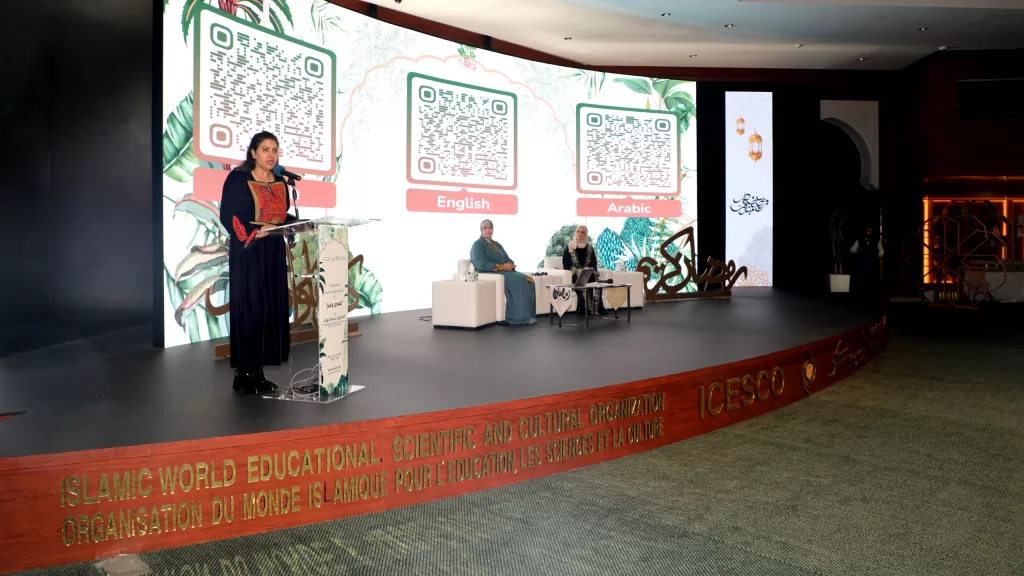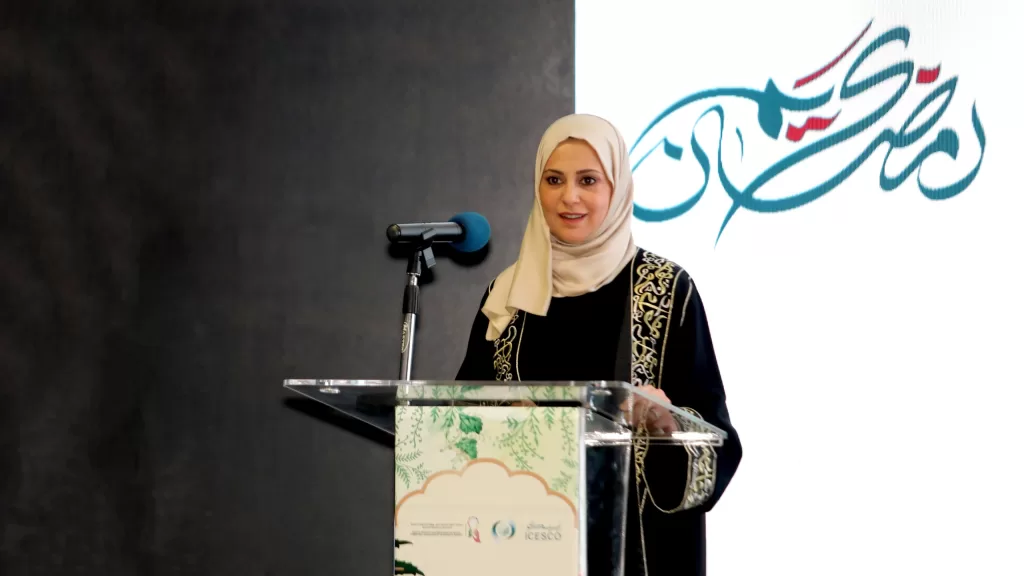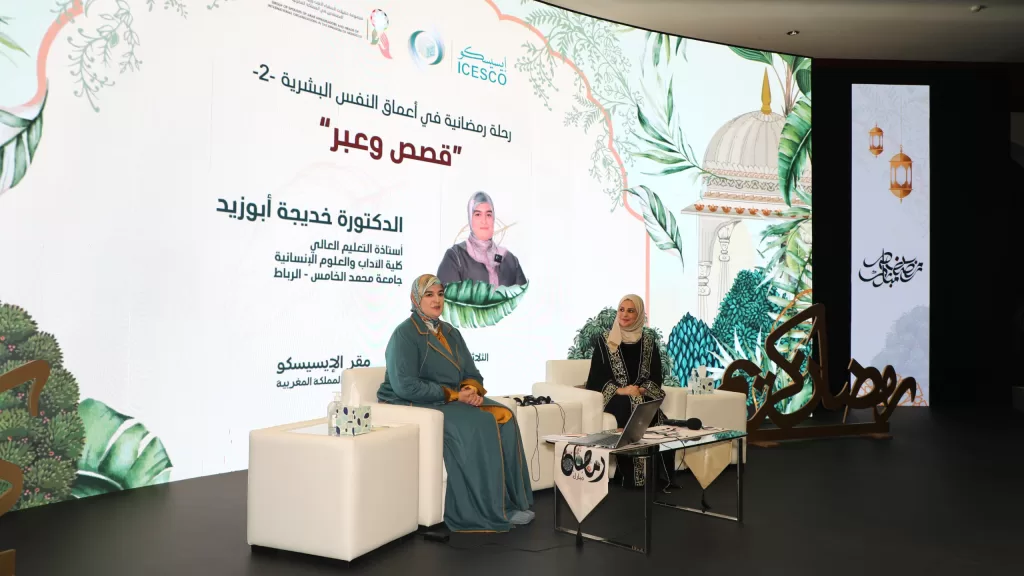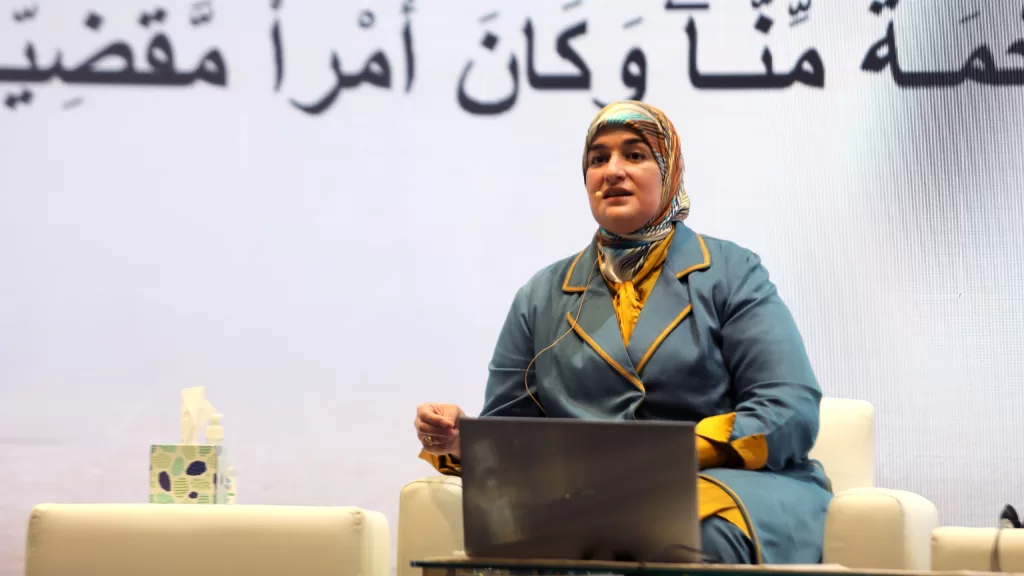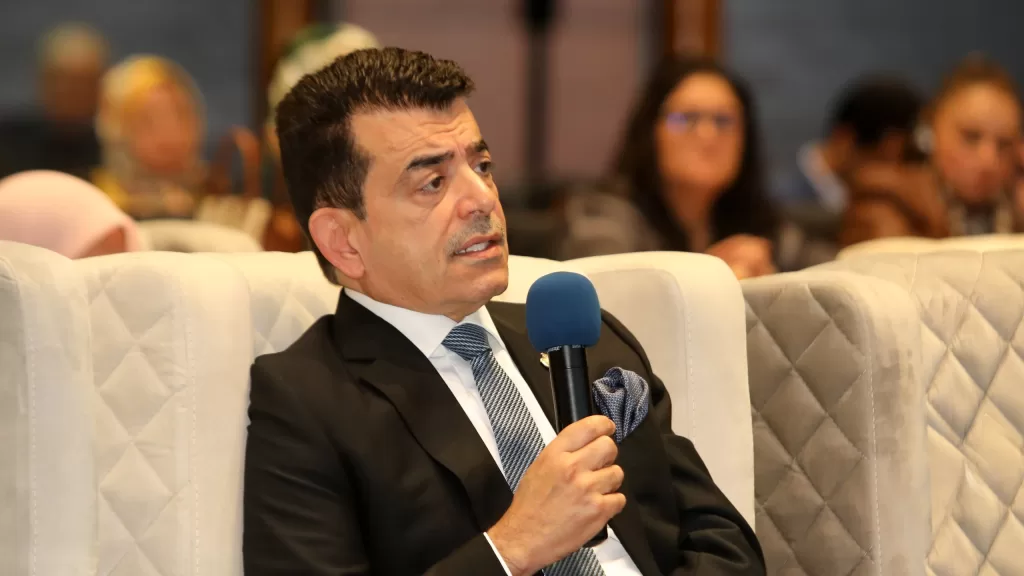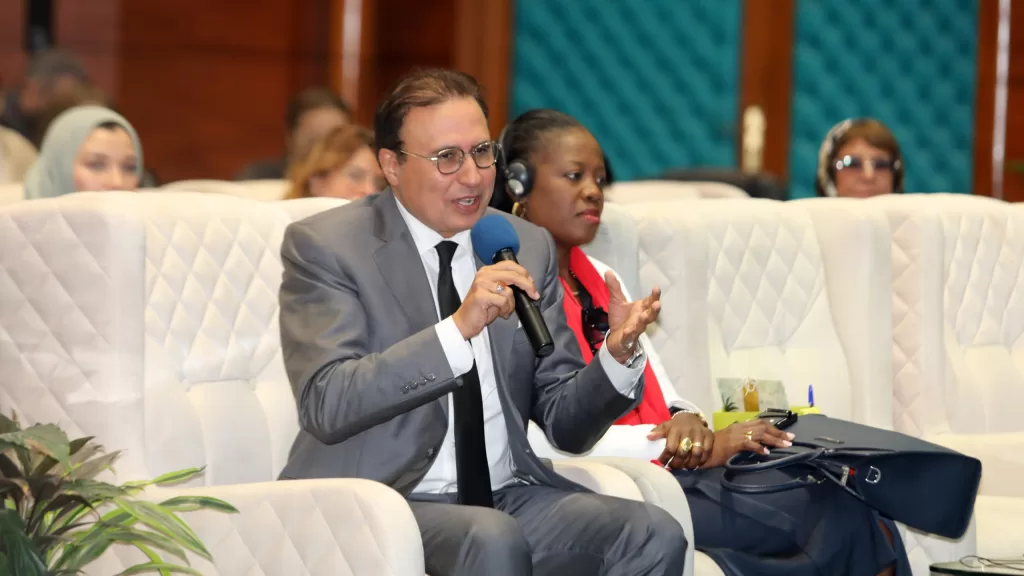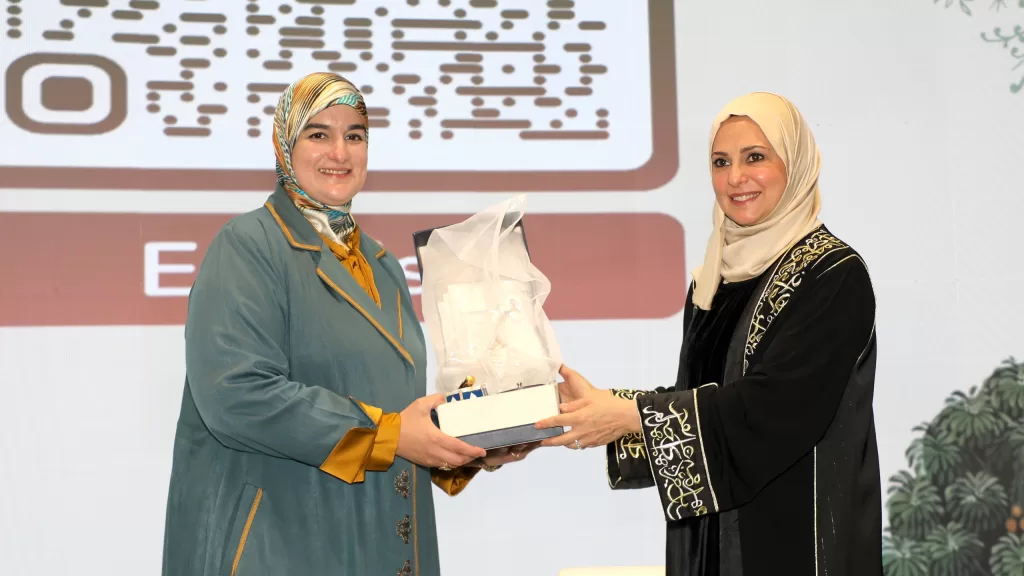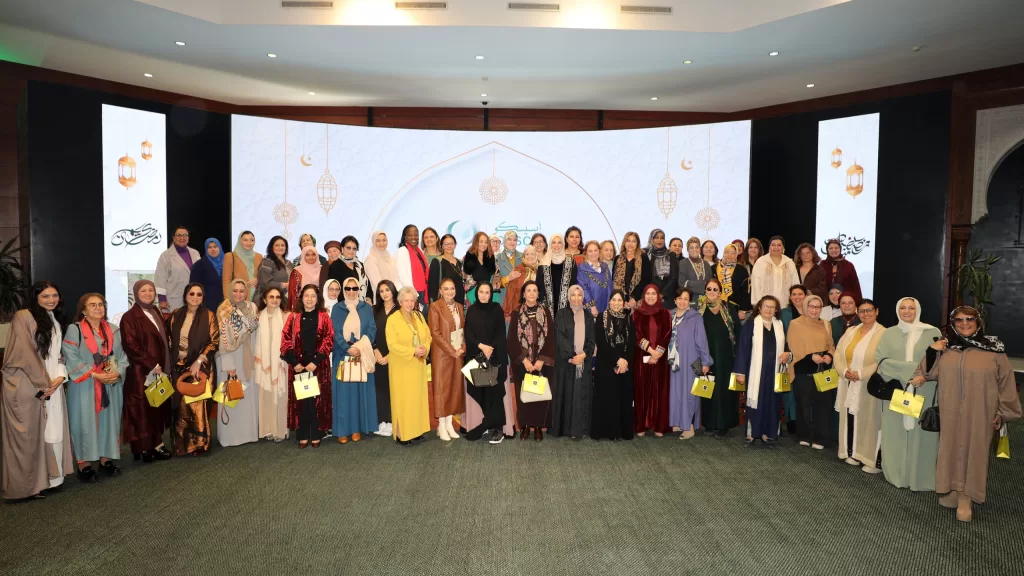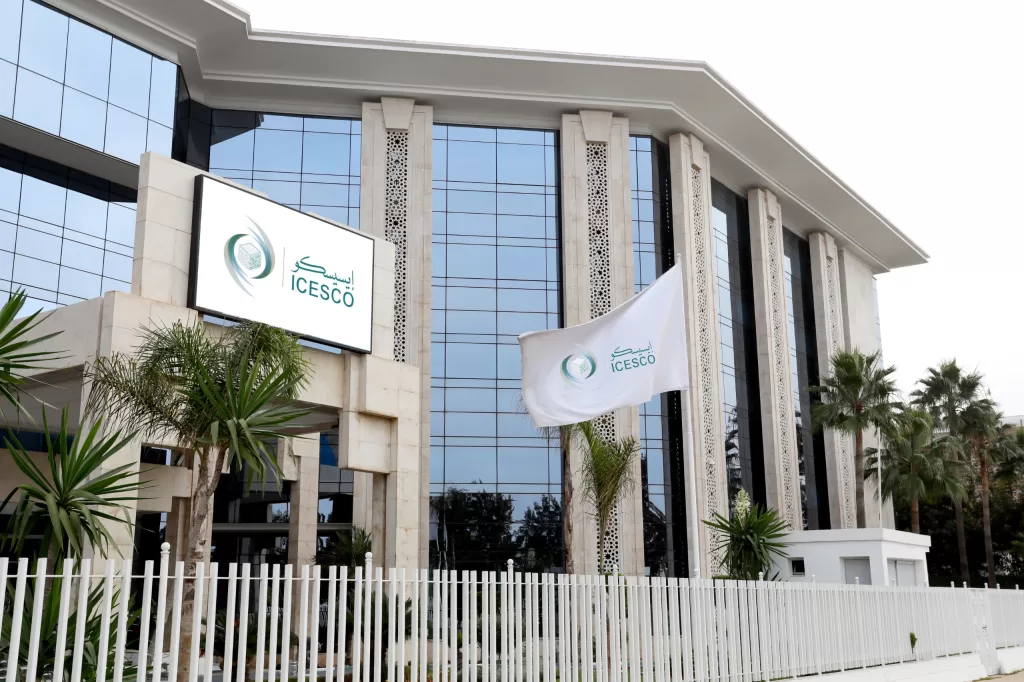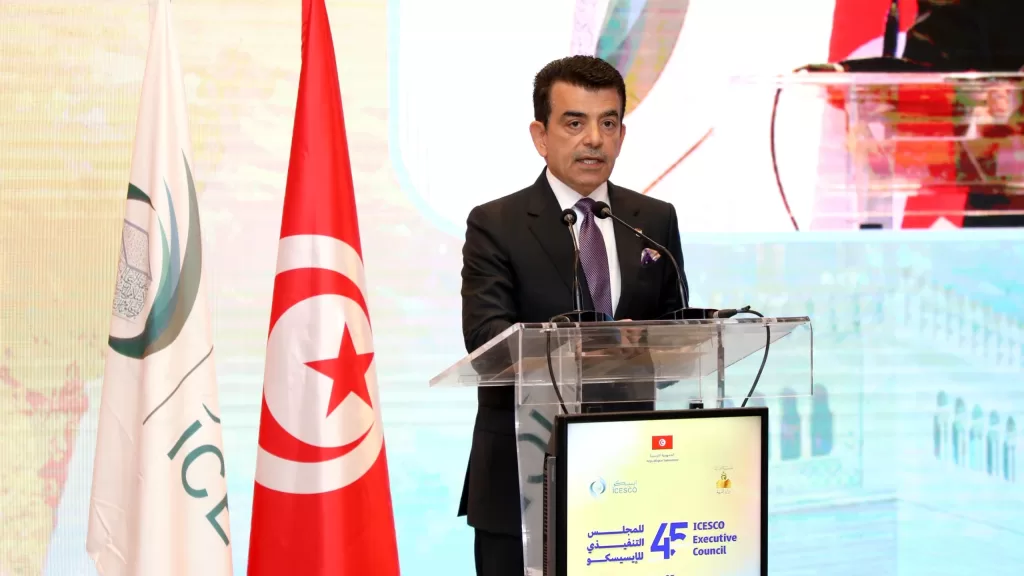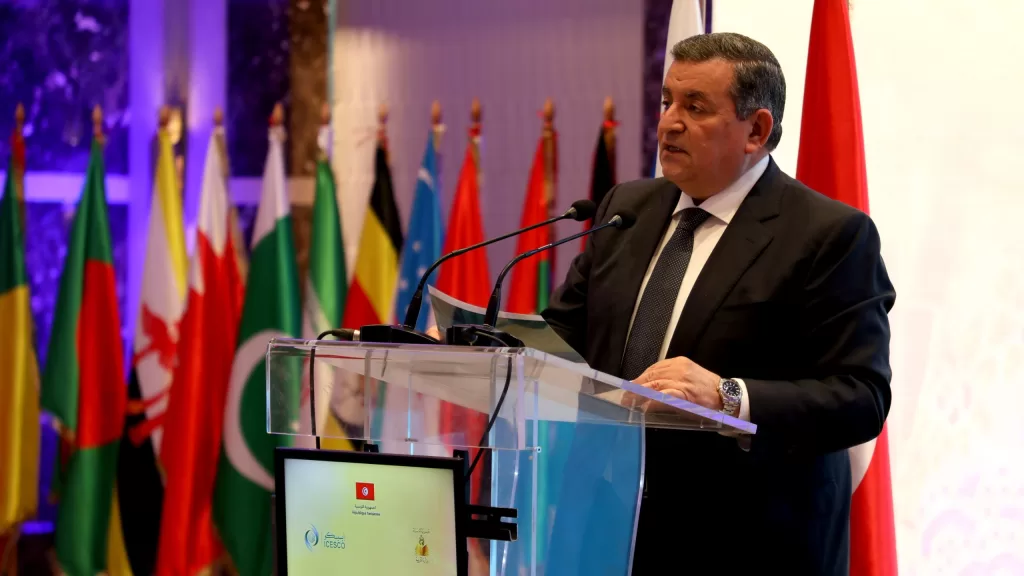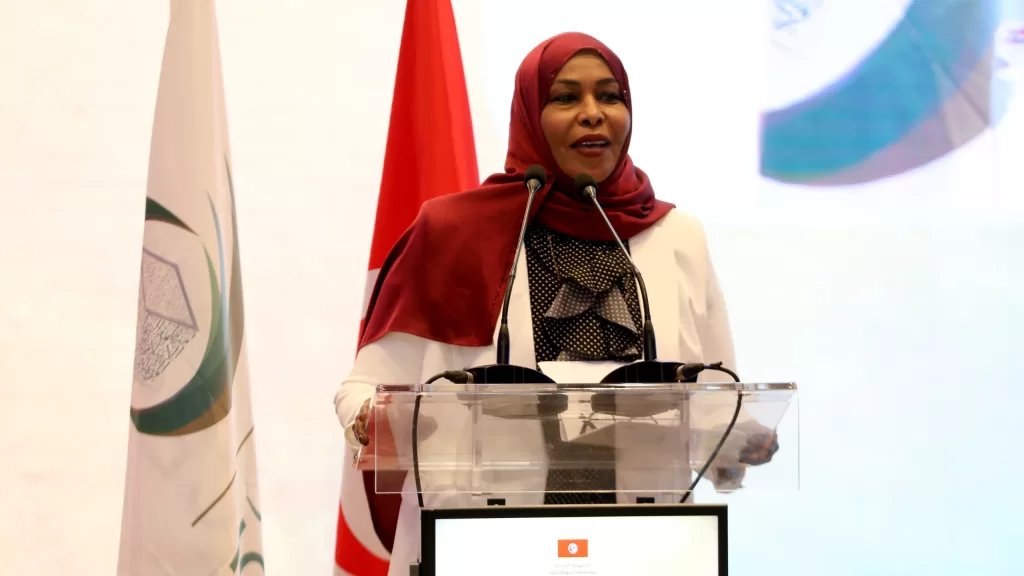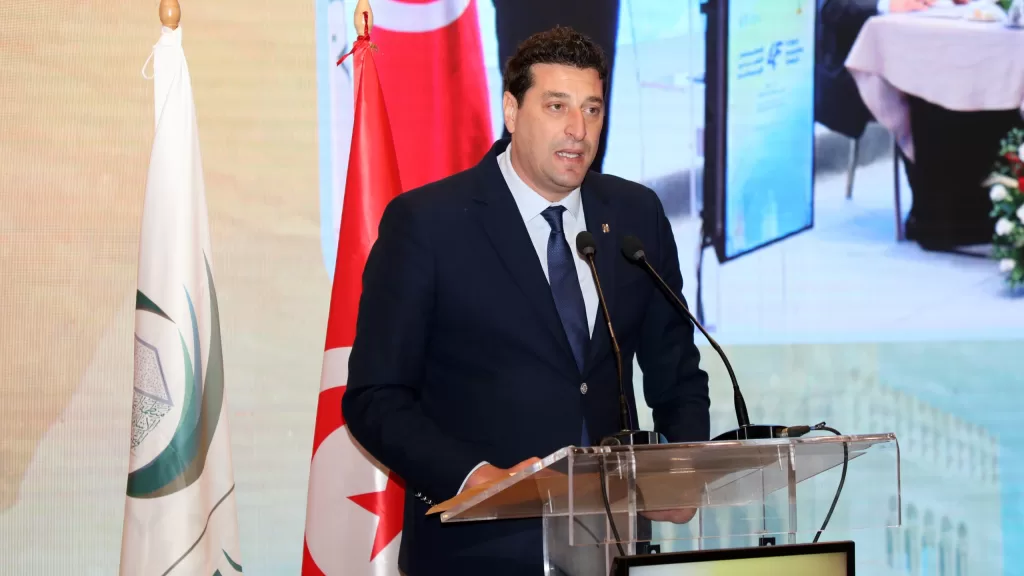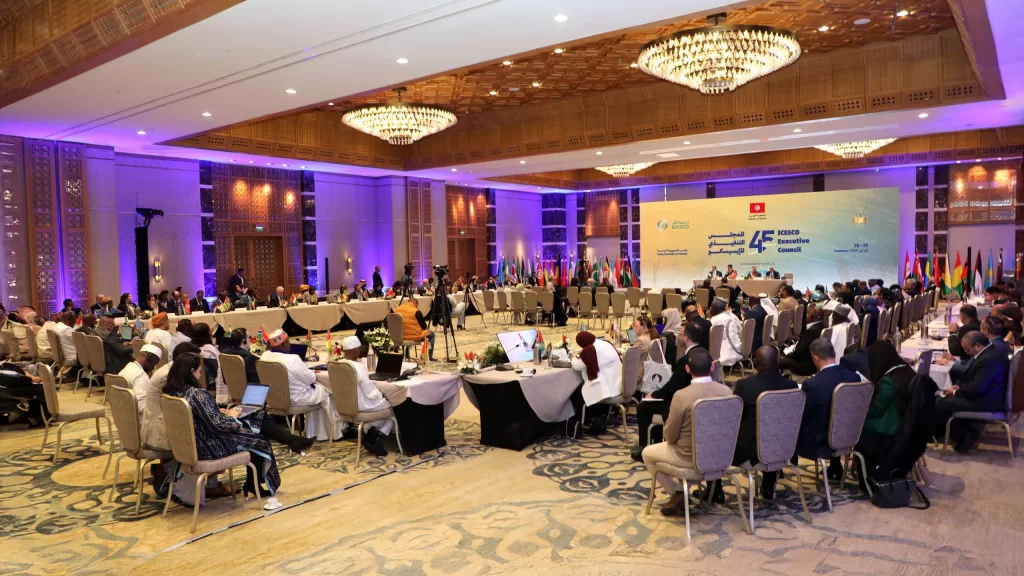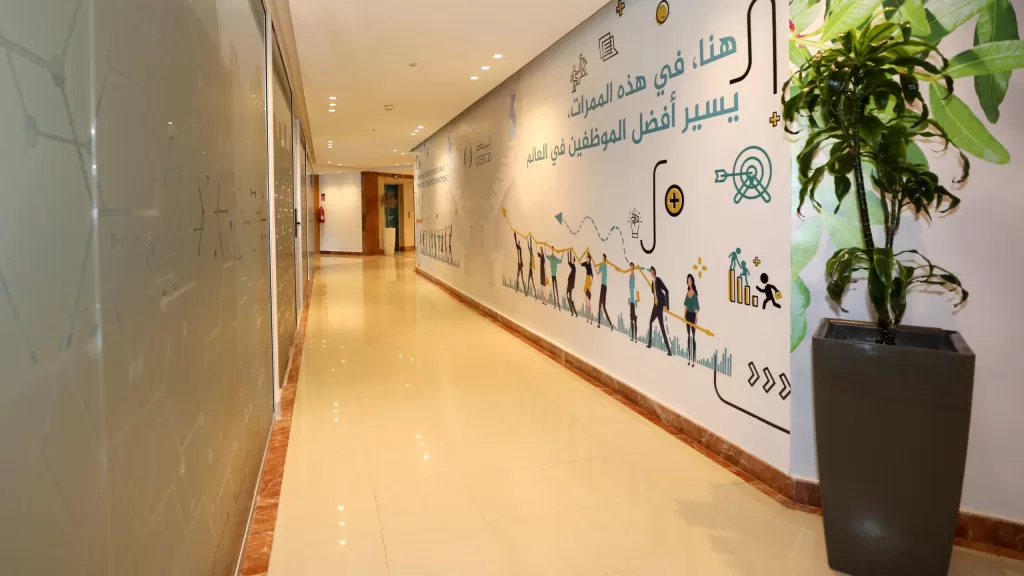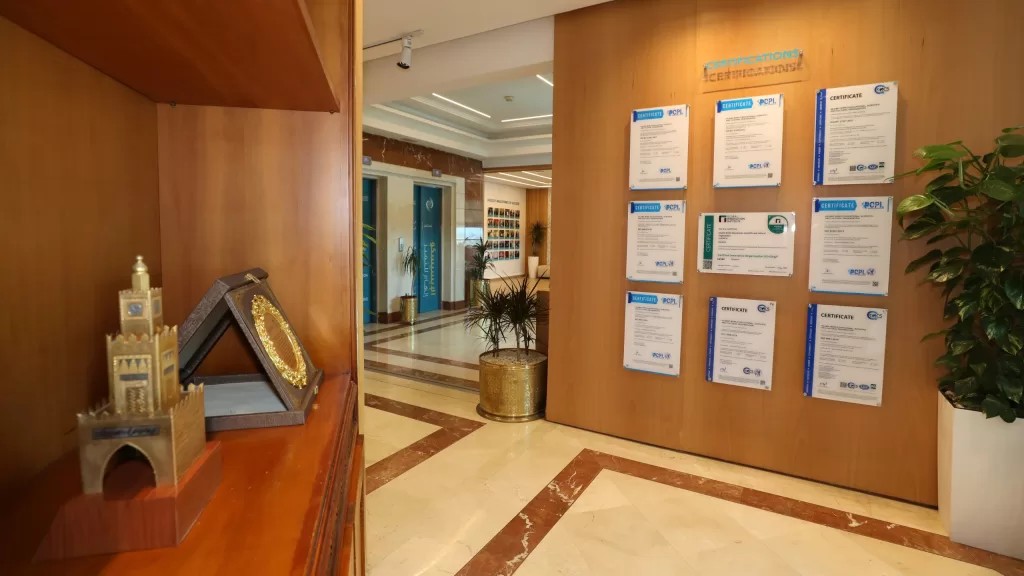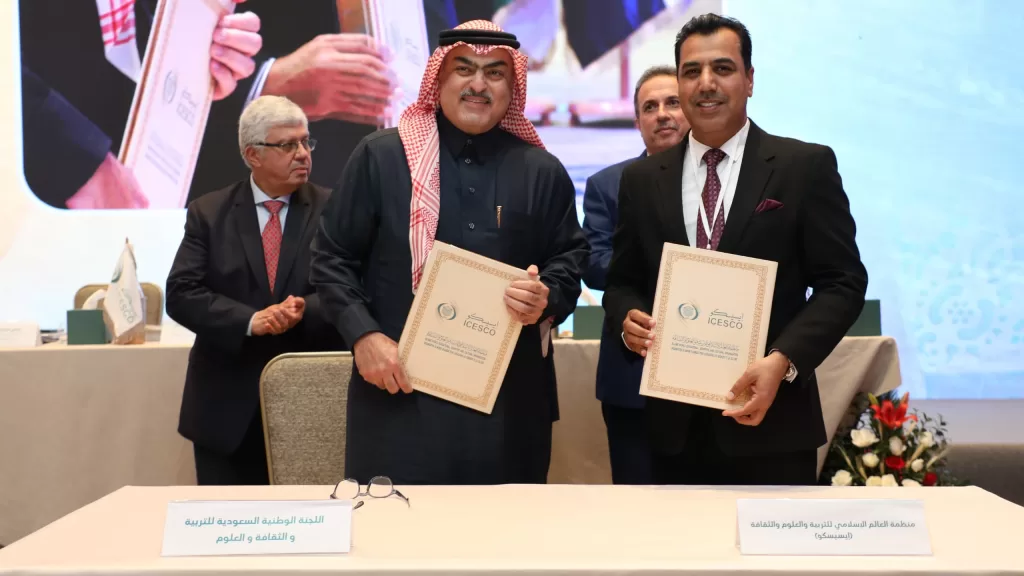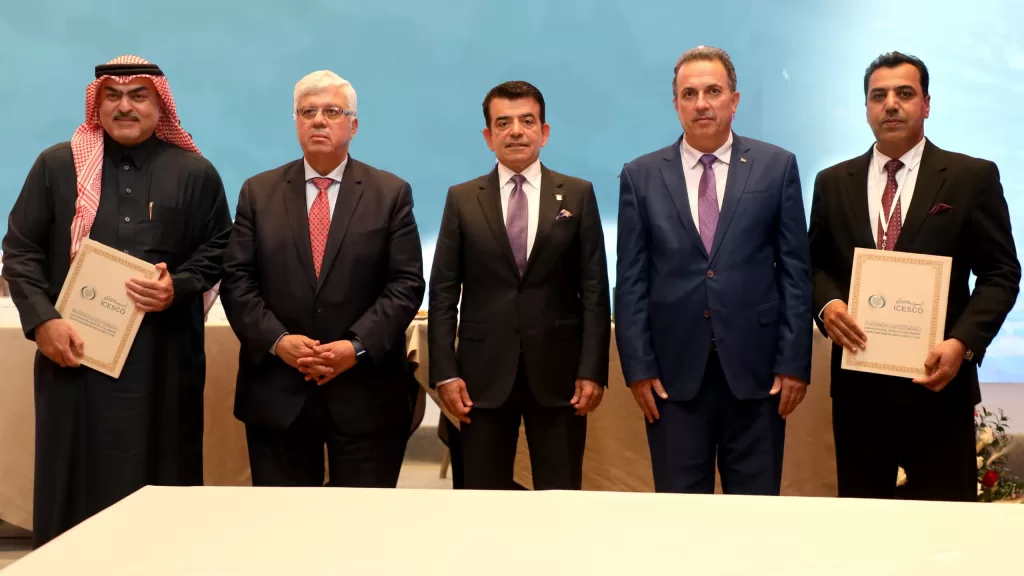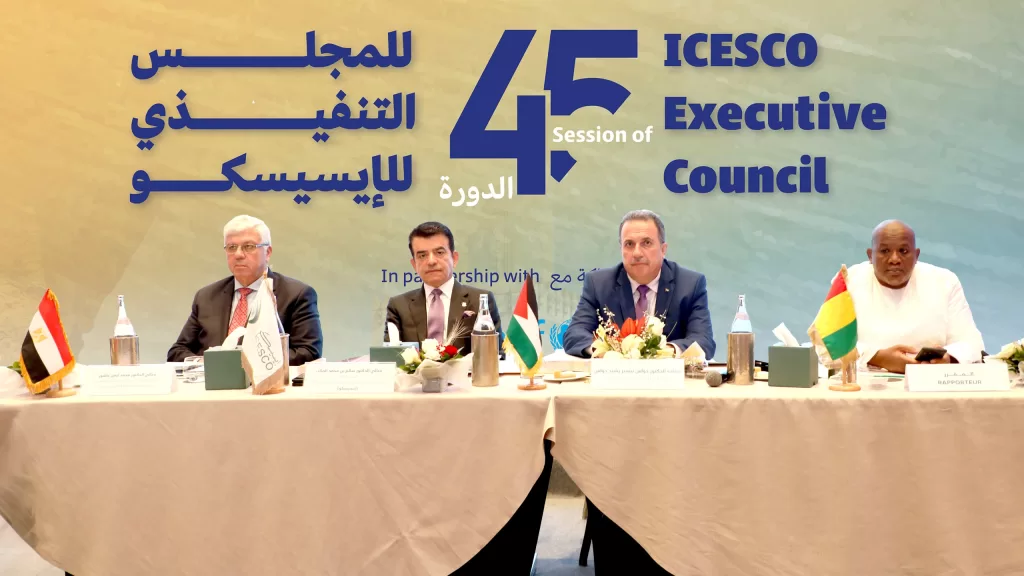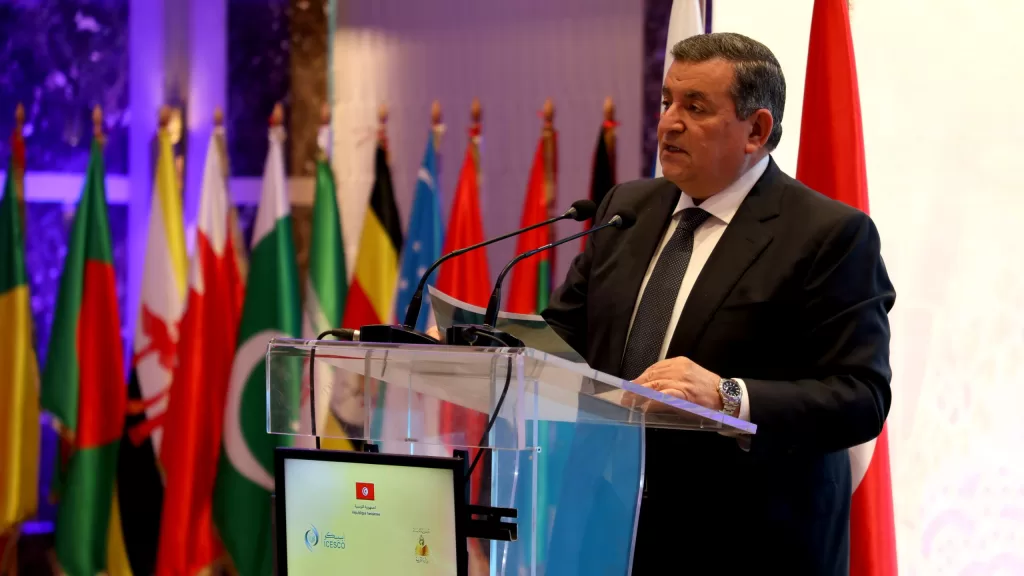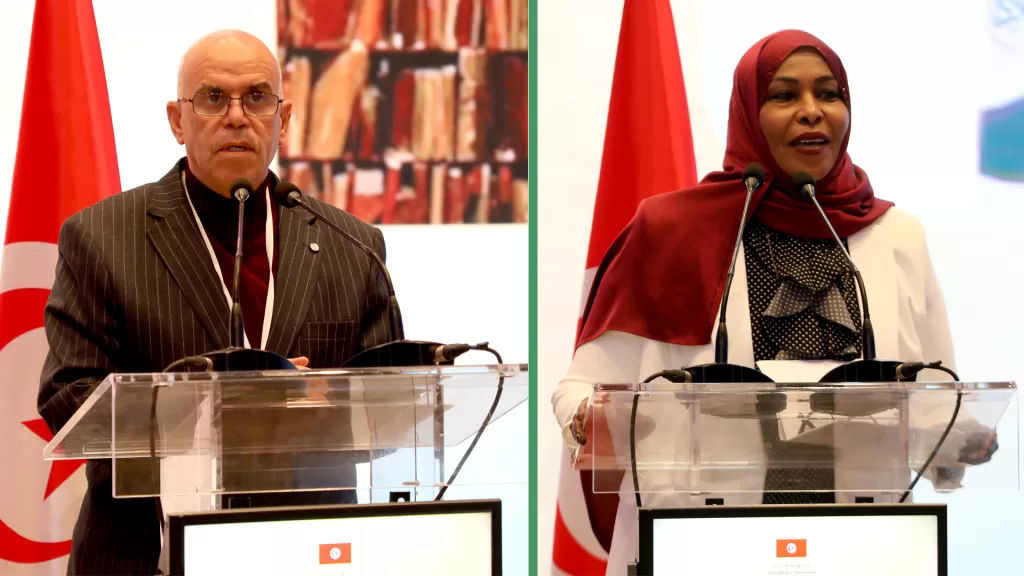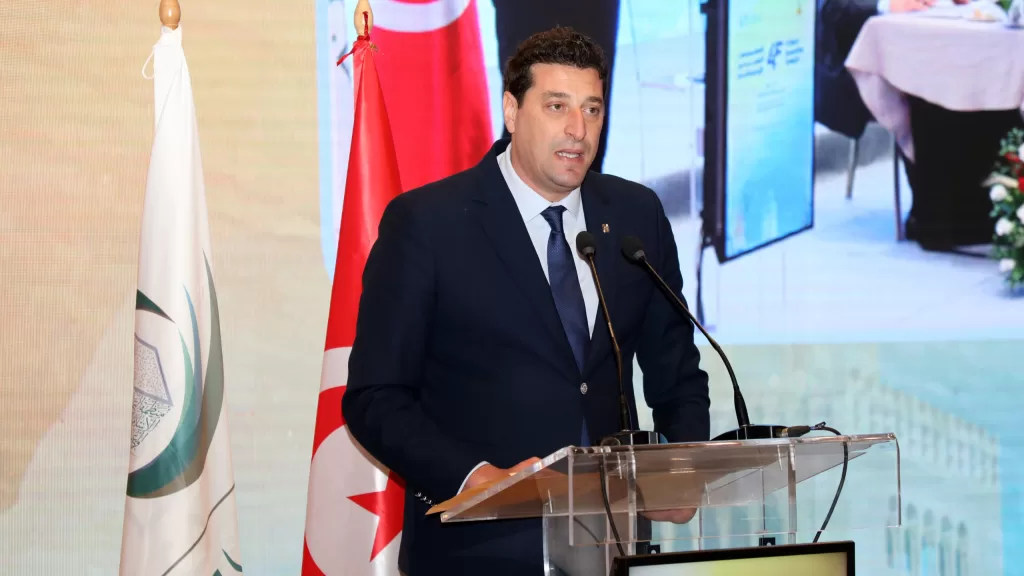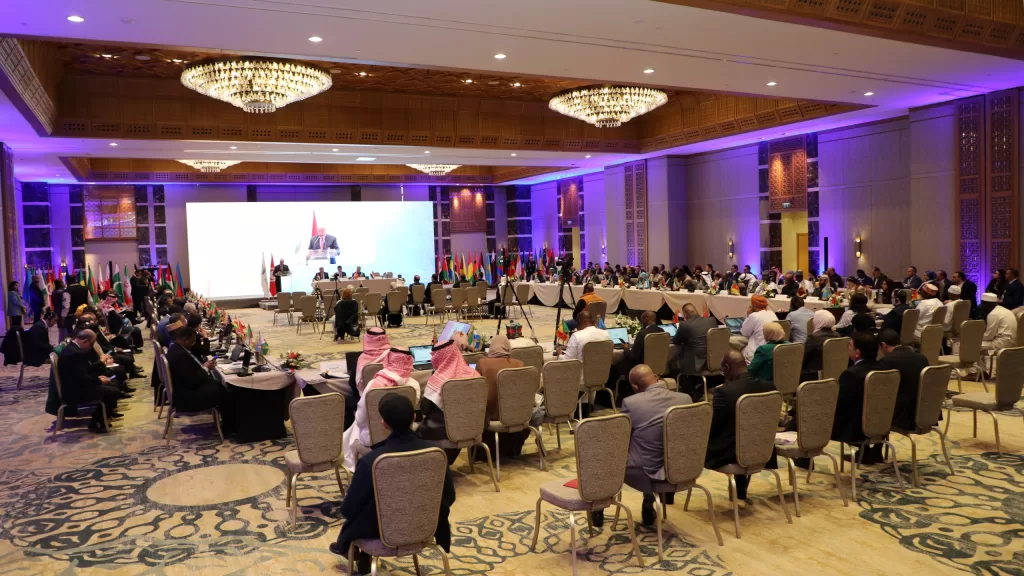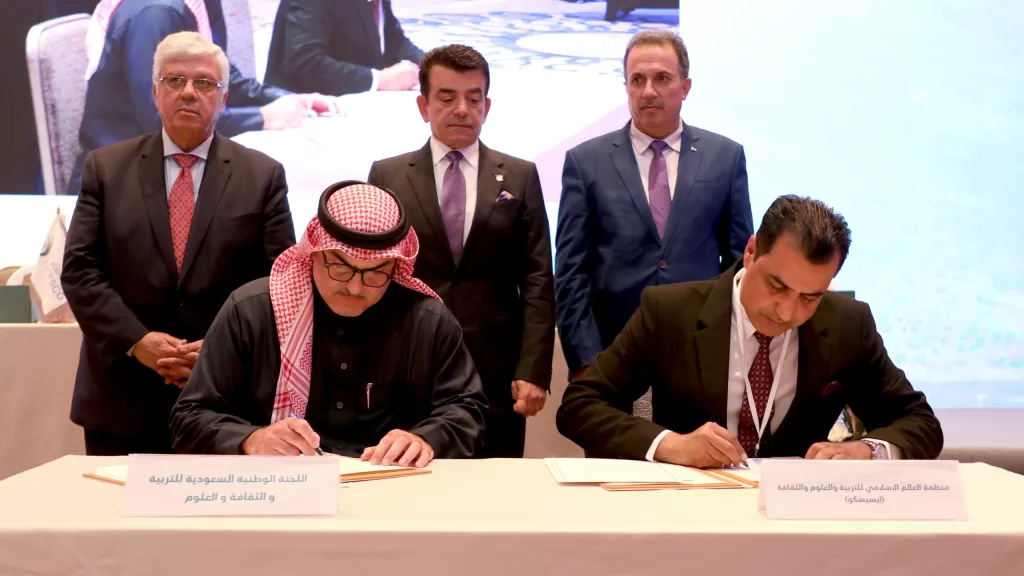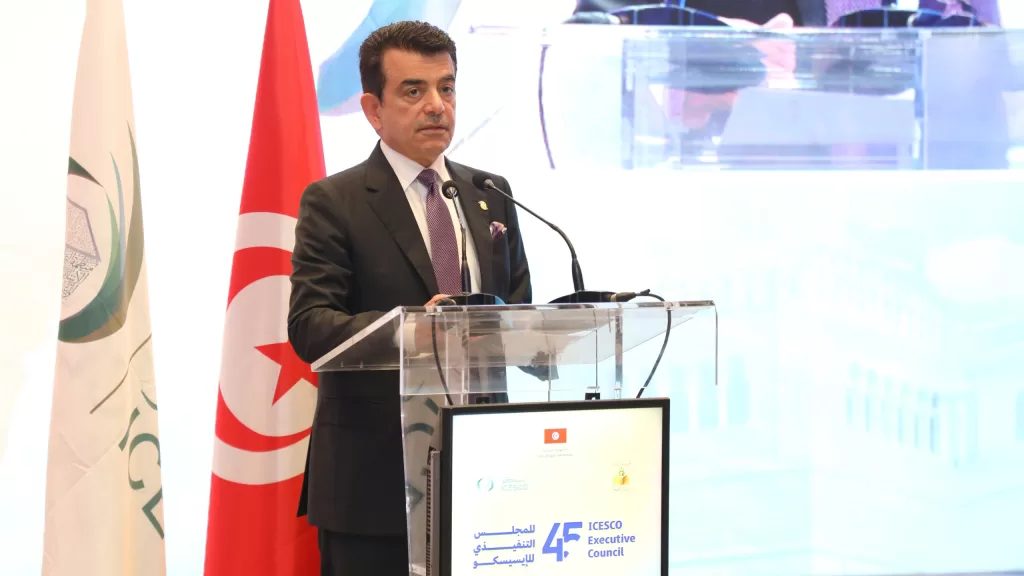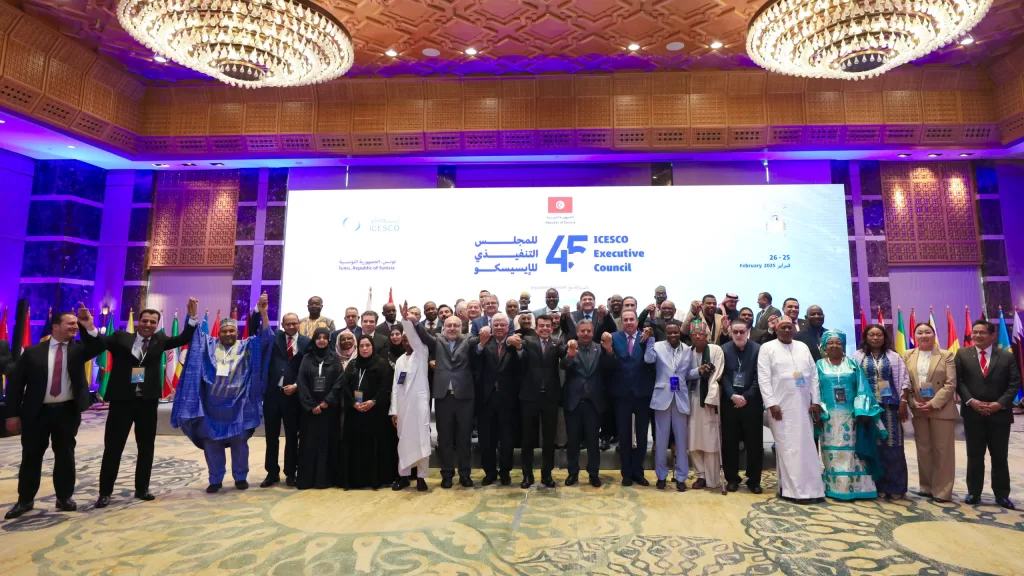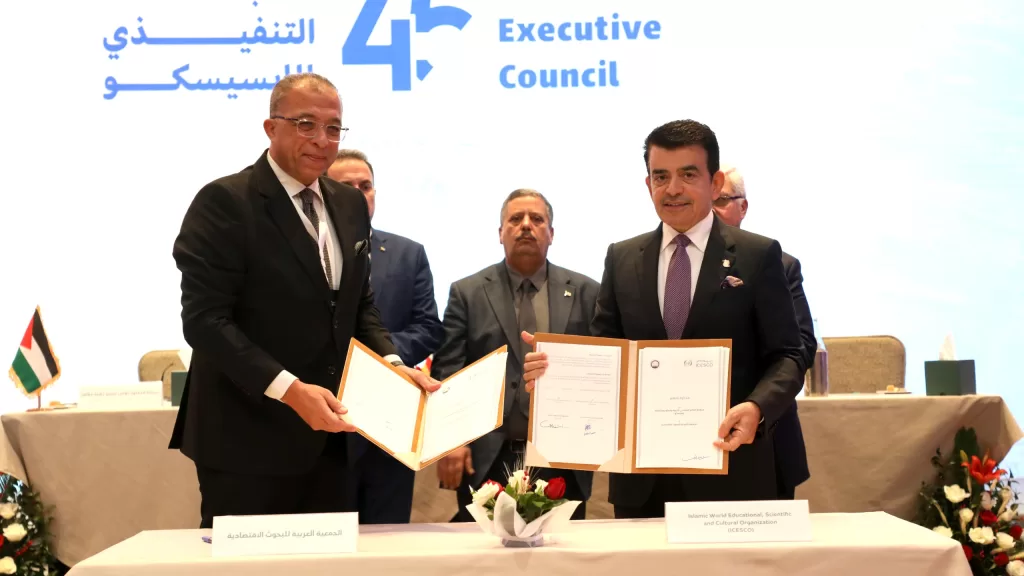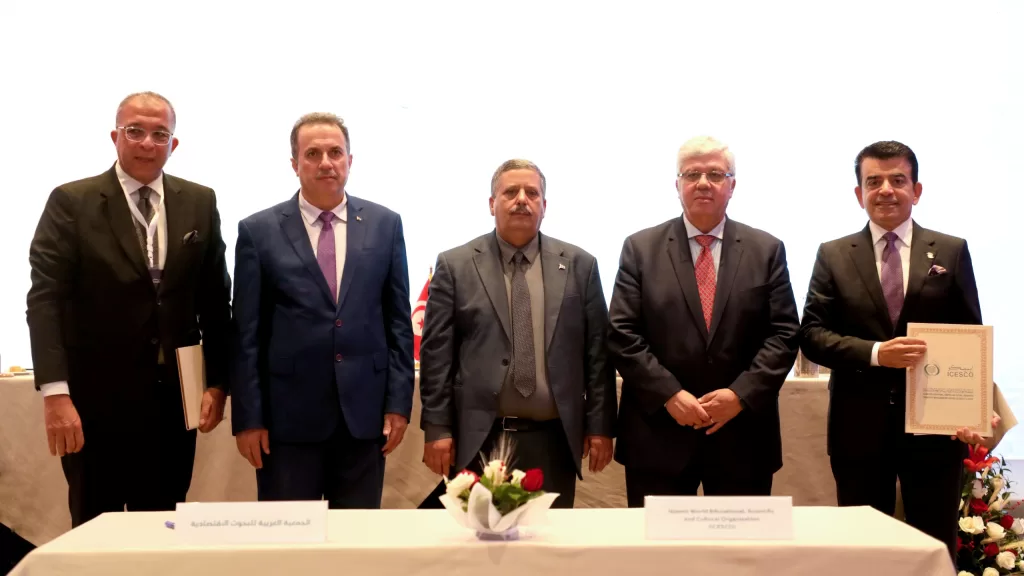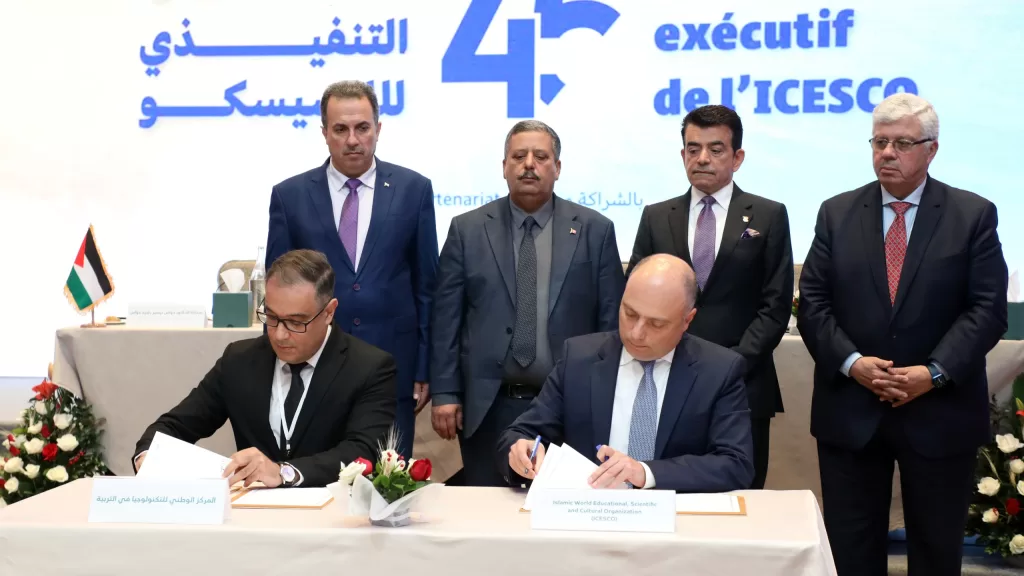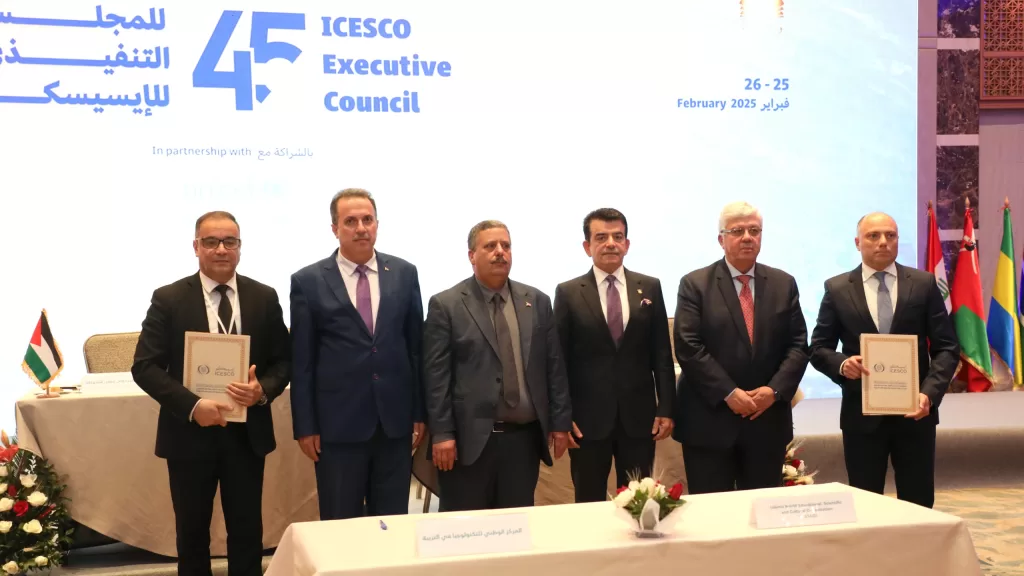Dr. Salim M. AlMalik, Director-General of the Islamic World Educational, Scientific, and Cultural Organization (ICESCO), and Ambassador Ahmed Nihad Abdel-Latif, Ambassador of the Arab Republic of Egypt to the Kingdom of Morocco, discussed a set of proposed activities and programs to enhance cooperation between ICESCO and Egypt in several areas. These include the organization of the Conference of Ministers of Higher Education and Scientific Research in the Islamic World, to be held in Cairo at the end of this year, ICESCO’s participation in the opening ceremony of the Grand Egyptian Museum, joint efforts in cultural heritage preservation, and the role of culture in building peace.
At the outset of the meeting, which took place on Wednesday, 19 March 2025, Dr. AlMalik praised the distinguished partnership between ICESCO and Egypt. He reviewed the most prominent activities and programs implemented in recent years between the two sides, notably the hosting of ICESCO’s 2021 General Conference under the patronage and in the presence of His Excellency President Abdel Fattah El-Sisi, the launch of ICESCO Youth Year under His Excellency’s patronage, and the celebration of Cairo as the 2022 Culture Capital of the Islamic World.
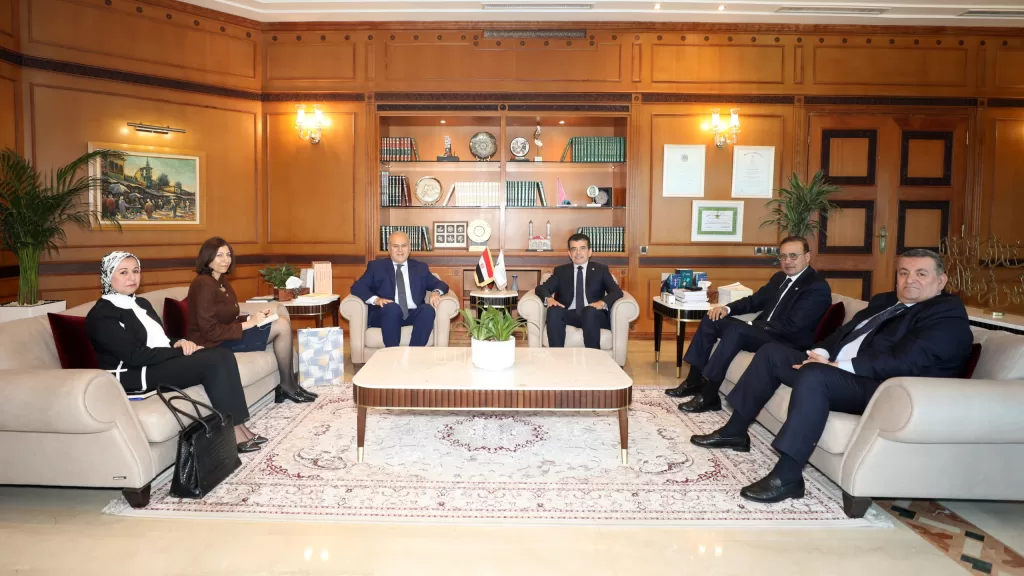
Dr. AlMalik emphasized his aspiration to advance the strategic partnership between the two parties through the implementation of pioneering programs and projects. He highlighted that, in alignment with its vision and operational strategy, ICESCO has adopted a proactive approach to engaging with its Member States. This engagement aims to implement collaborative initiatives that address their aspirations and needs, particularly in areas such as youth capacity building, preparing them for future professions, promoting the values of peace, and encouraging investment in technology, innovation, artificial intelligence, and space sciences.
Additionally, Dr. AlMalik reaffirmed ICESCO’s unwavering support for Dr. Khaled El-Enany, former Egyptian Minister of Tourism and Antiquities and the Arab-African candidate for the position of Director-General of UNESCO. He also commended the expertise and contributions of Egyptian professionals who have recently joined the Organization, recognizing their valuable role in advancing its mission.
For his part, Ambassador Ahmed Nihad Abdel-Latif expressed his aspiration to enhance cooperation between the two sides, particularly in view of ICESCO’s outstanding initiatives and programs in the fields of creativity and innovation.
The meeting was attended by Dr. Abdelilah Benarafa, ICESCO’s Deputy Director-General; Mr. Osama Heikal, Head of the Media and Communication Sector; and Ms. Sally Mabrouk, Head of the Office of the Director-General overseeing the Strategy and Institutional Excellence Sector. Also in attendance were Marwa Mamdouh-Salem, Deputy Ambassador of Egypt to Morocco, and Dr. Heba Mahmoud Saad, Cultural Attaché.
